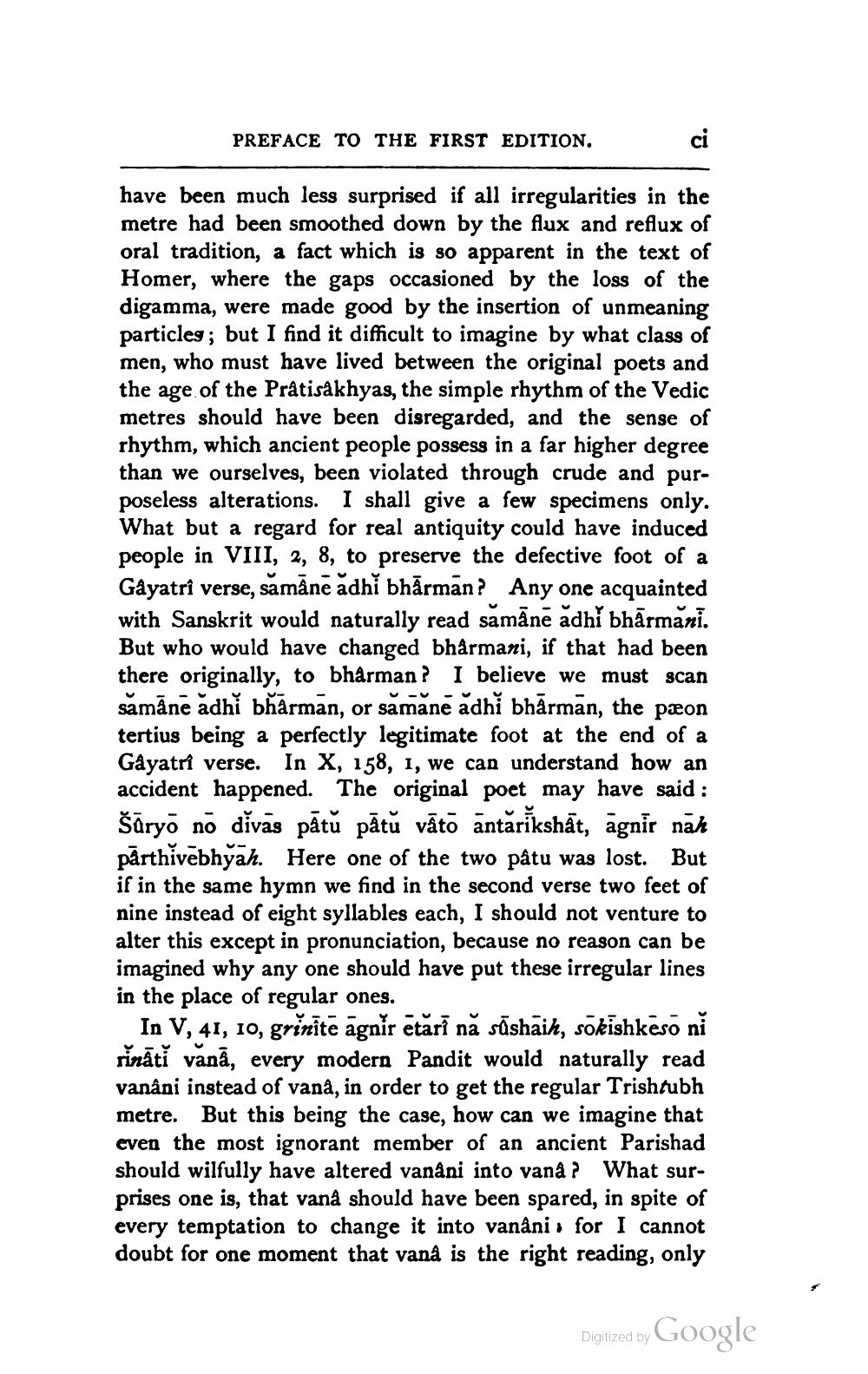________________
PREFACE TO THE FIRST EDITION.
ci
-
V
have been much less surprised if all irregularities in the metre had been smoothed down by the flux and reflux of oral tradition, a fact which is so apparent in the text of Homer, where the gaps occasioned by the loss of the digamma, were made good by the insertion of unmeaning particles; but I find it difficult to imagine by what class of men, who must have lived between the original poets and the age of the Prátisakhyas, the simple rhythm of the Vedic metres should have been disregarded, and the sense of rhythm, which ancient people possess in a far higher degree than we ourselves, been violated through crude and purposeless alterations. I shall give a few specimens only. What but a regard for real antiquity could have induced people in VIII, 2, 8, to preserve the defective foot of a Gayatri verse, samāne adhỉ bhārman? Any one acquainted with Sanskrit would naturally read sămâne adhi bhārmani. But who would have changed bhårmani, if that had been there originally, to bharman? I believe we must scan sămâne adhi bħārmān, or sămâne adhỉ bhārmān, the pæon tertius being a perfectly legitimate foot at the end of a Gayatri verse. In X, 158, 1, we can understand how an accident happened. The original poet may have said : Šāryā no divās pātă pātū vāto āntărikshāt, agnir nāk pārthivebhyah. Here one of the two påtu was lost. But if in the same hymn we find in the second verse two feet of nine instead of eight syllables each, I should not venture to alter this except in pronunciation, because no reason can be imagined why any one should have put these irregular lines in the place of regular ones.
In V, 41, 10, grinite agnir etări nă sāshāih, sokishkeso ni rināti vanā, every modern Pandit would naturally read vanâni instead of vana, in order to get the regular Trishtubh metre. But this being the case, how can we imagine that even the most ignorant member of an ancient Parishad should wilfully have altered vanâni into vand? What surprises one is, that vand should have been spared, in spite of every temptation to change it into vanânia for I cannot doubt for one moment that vana is the right reading, only
Digitized by Google




